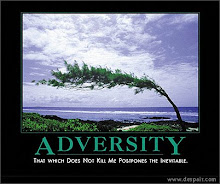The USPSTF's reasoning behind having women delay mammographic screening for an entire decade (!) cited that mammography has the most benefit for women aged 50 to 74, meaning that it is more effective in finding actual breast cancers among women in this age group. Mammography was cited as having "maximum effectiveness" for women aged 60 - 69 years.
For women aged 40 - 49, the recommendation mentions specifically that false-positive results occur more often within this age group. This might well be true, but as roughly 25% of breast cancers are found when women are in their 40s, I cannot begin to understand how delaying screening for 10 years could ever be advised. Also, many of the most aggressive cancers occur when women are in their 40s.
According to the American Cancer Society, for the year 2006, women in their 40s accounted for 17% of the deaths from breast cancer. This is not an insignificant number. If the USPSTF thinks that the ratio of 1900 women screened to 1 life saved is not enough to justify recommending screening for women in their 40s, they are overlooking the fact that most of the patients surveyed for any disease will not have it; that's why they call it "screening". If 17% of breast cancer deaths, and over 25% of breast cancer cases occur in women 40 - 49, their recommendation to do nothing until age 50 is completely outrageous.
And, if you're a gal who is 75 or older, you have apparently lived long enough, according to the USPSTF. There is "insufficient evidence" to recommend mammography screening for this age group. I have read some very heated comments on the web from women in this category: they are planning to live a very long time, and who is to decide that their lives are not worth as much as women in their 60s and 50s...? The answer is, "no one".
The USPSTF also mentions the "psychological harms" of undergoing screening and biopsies; I can tell you from personal experience that the anxiety which you feel while waiting for your biopsy results is nothing, compared to hearing those utterly devastating words, "We found cancer". Most women would rather undergo a temporary period of anxiety about their mammogram or biopsy results, because for most of them, it is followed by the relief that they feel when they find out they are cancer-free.
The entire biopsy process is much easier now than it was when I had my first cancer scare 16 years ago: I had to undergo general anesthesia, have an excisional biopsy/tumor removal in an operating room, then awake from the anesthesia to find out whether or not I had cancer. When my cancer was found in 2007, I underwent a stereotactic biopsy in a surgical suite, where I was awake the entire time, and only needed a tiny incision. A month later, post-MRI, I had to have another stereotactic biopsy of a suspicious growth in my other breast; thankfully, this turned out to be benign, although I had mentally prepared myself for the possibility of having cancer in both breasts.
I am very concerned that women who don't routinely get mammograms will use this as an excuse to delay or forego being screened. We all know friends or co-workers who put off getting their mammograms for one reason or another, and they will use the USPSTF's recommendation to justify their decision. This will ultimately cause more harm, and have women presenting with more advanced cancers, diminishing their chances of survival. This is costly to the patient's quality of life, and to the entire healthcare system, as these cases are more difficult and expensive to treat.
Many medical professionals are now angered by the climate of confusion and conflicting messages which the USPSTF has created: for decades, women have been encouraged to have regular mammograms, which do save lives. My cancer was found by my yearly, non-digital mammogram, and I remain extremely grateful for this. I am convinced that my mammogram saved my life.
The American Cancer Society and the National Cancer Institute still recommend yearly mammograms for women aged 40 to 49. This is the important thing to remember, and please, get screened. Life is precious.


